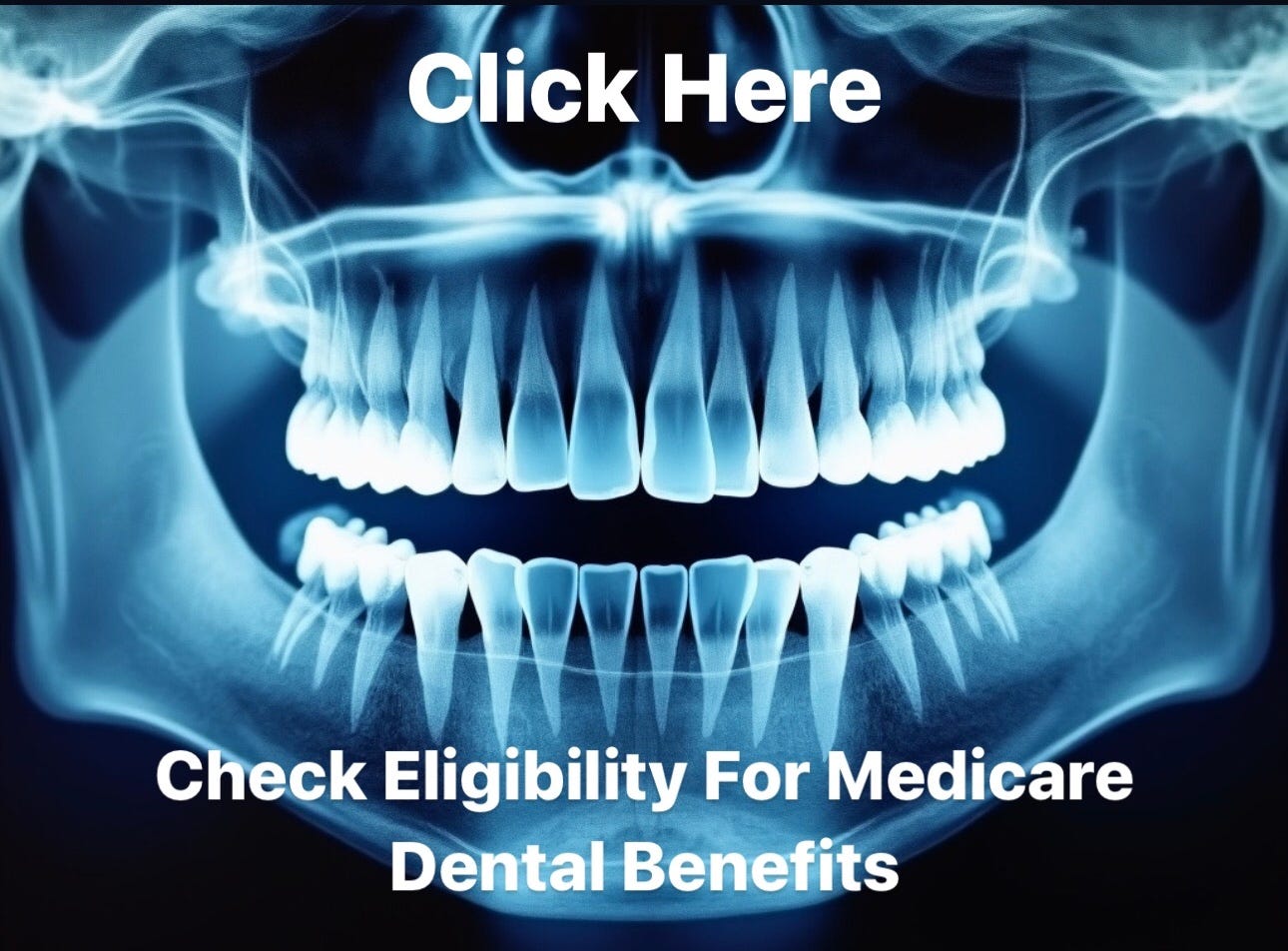Welcome to Medicare Matters, where we break down complex Medicare topics to help you stay informed and empowered. I’m your host, Richard Battell, and today we’re diving deep into a topic that is particularly relevant to many Medicare beneficiaries as we approach 2025—changes to Medicare coverage for dental implants.
This is a critical topic because, let’s face it, oral health isn’t just about having a nice smile. For many, it’s essential for overall well-being, from eating properly to maintaining self-esteem. Unfortunately, Medicare’s approach to dental care has historically been quite limited, and things are about to get even more complicated.
In today’s episode, we’ll explore everything you need to know about these upcoming changes. We’ll explain the specifics of what’s changing in 2025, how it may impact you or your loved ones, and—most importantly—what alternatives exist to help ensure that you get the coverage you need for dental implants and other crucial dental care.
We’ll also touch on strategies to stay proactive and informed, so you can navigate these changes without sacrificing your dental health. Let’s get started!
The State of Medicare Dental Coverage
First, let’s set the stage by looking at where Medicare dental coverage stands today. If you’ve been on Medicare for a while or are just starting to explore your options, you’ve likely noticed that Original Medicare—that’s Medicare Parts A and B—provides very little when it comes to dental benefits.
Medicare covers essential medical services like hospital stays, doctor visits, and preventative care, but it largely overlooks dental needs. The only exceptions have been when dental care is deemed medically necessary due to a broader health condition. For instance, if a dental infection is threatening to worsen another health condition or if a dental procedure is required before certain surgeries, Medicare might step in and provide some coverage.
However, this is rare and usually only applies to emergency dental situations. Routine dental care like cleanings, fillings, extractions, and dental implants—which is our focus today—have generally not been covered.
Now, for many seniors, dental implants represent more than just a cosmetic procedure. They are often a necessity for maintaining a functional set of teeth after tooth loss due to decay, injury, or other health conditions. Dental implants offer a more permanent, comfortable, and aesthetically pleasing solution compared to dentures, which can slip, cause discomfort, and interfere with daily activities like eating and speaking.
But the cost of dental implants can be a significant barrier. A single implant can range from $3,000 to $5,000, and if multiple implants are needed, the cost can escalate quickly. This is where Medicare’s lack of coverage has left many seniors searching for alternative options to afford this critical procedure.
What Changes Are Coming in 2025?
As we look ahead to 2025, some changes to Medicare’s dental coverage policies are on the horizon, particularly affecting how dental implants are covered—or not covered. This is part of a broader shift in how Medicare is approaching cost management. As healthcare costs rise, Medicare is implementing measures to contain costs and prioritize medically necessary treatments over elective procedures. Unfortunately, this could mean less financial support for dental implants under certain circumstances.
So, what exactly is changing? Here’s a breakdown of the key points:
1. Stricter Qualifications for Dental Implants:
• Medicare is likely to impose stricter rules regarding what constitutes a medically necessary dental implant. Right now, implants might be covered if your dentist can demonstrate that they are essential to your overall health—for instance, if tooth loss is leading to malnutrition or exacerbating another medical condition. But in 2025, the criteria to qualify for this coverage could become even more challenging to meet. The focus will shift to more restrictive definitions of medical necessity, meaning fewer people will qualify for coverage.
2. Higher Out-of-Pocket Costs:
• With stricter qualifications will likely come higher out-of-pocket costs for those who do need dental implants. Even if your implants are deemed medically necessary, Medicare might reduce the percentage of costs it covers, leaving you to pay a larger share of the bill. This change could hit beneficiaries hard, especially those on fixed incomes who already struggle to afford the rising cost of healthcare.
3. Fewer Providers Accepting Medicare:
• Another significant consequence of these changes is that some dental providers may choose to stop accepting Medicare for dental implant procedures. As Medicare reduces the reimbursement rates it pays to providers, some dental practices might decide that offering services to Medicare patients is no longer financially viable. This could limit your options when searching for a dentist willing to perform the procedure under Medicare.
These changes can feel overwhelming, especially if you’re counting on Medicare to cover part of your dental implant procedure. But don’t worry—there are still steps you can take to navigate this evolving landscape.
Understanding the Value of Dental Implants
Now, before we get into the strategies for managing these changes, let’s take a moment to understand why dental implants are so important for many people.
As I mentioned earlier, dental implants are more than just a cosmetic fix. They serve as artificial tooth roots that support replacement teeth, providing a stable and permanent base. This is a big advantage over dentures, which can slip, feel uncomfortable, and even cause sores or difficulty with speech and chewing. Implants, on the other hand, are secure and feel like natural teeth, making them a long-term solution for tooth loss.
For many seniors, maintaining their oral health is crucial not only for physical health but also for mental and emotional well-being. Eating, socializing, and interacting confidently with others all depend heavily on your ability to smile, speak, and chew without discomfort. Dental implants improve not just your oral health but also your quality of life. That’s why it’s important to understand your options for getting these procedures covered, even as Medicare’s rules shift.
How to Still Qualify for Dental Implants in 2025
So, with the changes to Medicare’s dental coverage coming in 2025, how can you still qualify for dental implants? While the rules are tightening, it’s not impossible to navigate the system to get the care you need.
Here are some key strategies:
1. Demonstrate Medical Necessity:
• First and foremost, work with your dentist or oral surgeon to document medical necessity. This is crucial. If your tooth loss is causing other health problems—whether it’s difficulty eating, leading to malnutrition, or contributing to chronic infections—make sure that’s clearly outlined in your medical records. You might need supporting documentation from other healthcare providers, like your primary care doctor or a nutritionist, to help make the case that implants are necessary for your overall health.
2. Explore Supplemental Insurance:
• Many beneficiaries turn to Medicare Advantage (Part C) or Medigap plans to fill the gaps left by Original Medicare. While Medicare Advantage plans are offered by private insurers and can include additional benefits like dental coverage, not all plans are created equal. Some Medicare Advantage plans offer more comprehensive dental benefits, including coverage for implants. However, you’ll need to compare plans carefully to understand which ones offer the best coverage for your specific needs.
• Medigap plans, on the other hand, are designed to help cover out-of-pocket costs for Original Medicare services. While they don’t typically cover dental, some plans may offer dental riders for an additional cost. Again, reviewing your options thoroughly is key.
3. State and Local Programs:
• Some state and local health programs offer additional support for dental care, including implants. These programs vary widely by state and even by county, so it’s worth checking with your local health department to see if there are resources available to help cover the cost of dental implants.
4. Negotiate Payment Plans:
• If you’re facing high out-of-pocket costs for your dental implants, consider discussing payment plans with your dentist. Many dental practices offer financing options that allow you to spread the cost of treatment over time, making it more manageable. Some offices work with third-party financing companies that specialize in medical and dental procedures.
5. Look for Clinical Trials:
• Lastly, keep an eye out for clinical trials that might be testing new dental implant techniques or materials. These studies often offer free or discounted care to participants in exchange for being part of the trial. While this option won’t be available to everyone, it’s worth exploring, especially if cost is a major concern.
Alternative Coverage Options for Dental Implants
If traditional Medicare is leaving you with limited options, there are alternative coverage solutions you can consider to ensure you get the dental care you need.
1. Medicare Advantage Plans:
• As I mentioned earlier, some Medicare Advantage plans offer comprehensive dental coverage, including implants. These plans are administered by private insurance companies and can include benefits beyond what Original Medicare provides. If you’re considering a Medicare Advantage plan, make sure you understand the coverage for dental procedures like implants, as well as any network restrictions that might limit which dentists you can see.
• Keep in mind that not all Medicare Advantage plans are created equal. Some may offer more robust dental coverage, while others may only cover basic care. Take the time to review the specifics of each plan to ensure you’re selecting one that meets your dental needs.
2. Standalone Dental Insurance:
• Another option to consider is purchasing a standalone dental insurance plan. Many insurance companies offer plans specifically for dental care, including implants. These plans often come with a monthly premium but can provide significant savings on procedures like implants. However, be aware that some dental plans may have waiting periods for major procedures, meaning you’ll need to be covered for a certain amount of time before you’re eligible for coverage.
3. Dental Discount Plans:
• If standalone insurance is too costly or you don’t qualify, you might want to explore dental discount plans. These plans are not insurance but rather a membership that gives you access to reduced rates on dental procedures. With a dental discount plan, you’ll pay an annual fee to join, and then you can receive discounts on services at participating dental providers. While these discounts may not cover the full cost of implants, they can help reduce your out-of-pocket expenses.
4. HSAs and FSAs:
• If you have access to a Health Savings Account (HSA) or a Flexible Spending Account (FSA), these can be valuable tools for covering dental costs. Both HSAs and FSAs allow you to set aside pre-tax dollars to cover medical expenses, including dental care. While the funds in these accounts might not cover the entire cost of implants, they can help offset some of the expenses and reduce your tax burden at the same time.
5. Charitable Organizations:
• There are also several charitable organizations that help seniors and low-income individuals access dental care. Organizations like Dental Lifeline Network provide donated dental services to eligible patients. While the availability of these services can vary depending on your location, it’s worth exploring if you’re struggling to afford dental implants.
Taking Control of Your Dental Health
As we wrap up, I want to emphasize the importance of being proactive about your dental health. The upcoming changes to Medicare’s dental coverage in 2025 may seem daunting, but with the right planning, you can navigate these challenges and still access the care you need.
Here’s a quick recap of what we’ve covered today:
• Medicare’s dental coverage is limited, and in 2025, the rules around dental implants are expected to become even stricter.
• However, by working with your dentist to document medical necessity, exploring supplemental insurance options, and considering alternatives like dental discount plans, you can still find ways to afford the care you need.
• Remember, your oral health is a key part of your overall well-being, so don’t be afraid to explore all available options and advocate for yourself.
If you found this episode helpful, please share it with a friend or family member who might benefit from this information. And don’t forget to subscribe to The Medicare Minute so you never miss an episode of valuable insights into the Medicare world.
Thank you for tuning in, and until next time, stay informed and take control of your health! Click the image below to check your dental coverage eligibility with Medicare!










Share this post